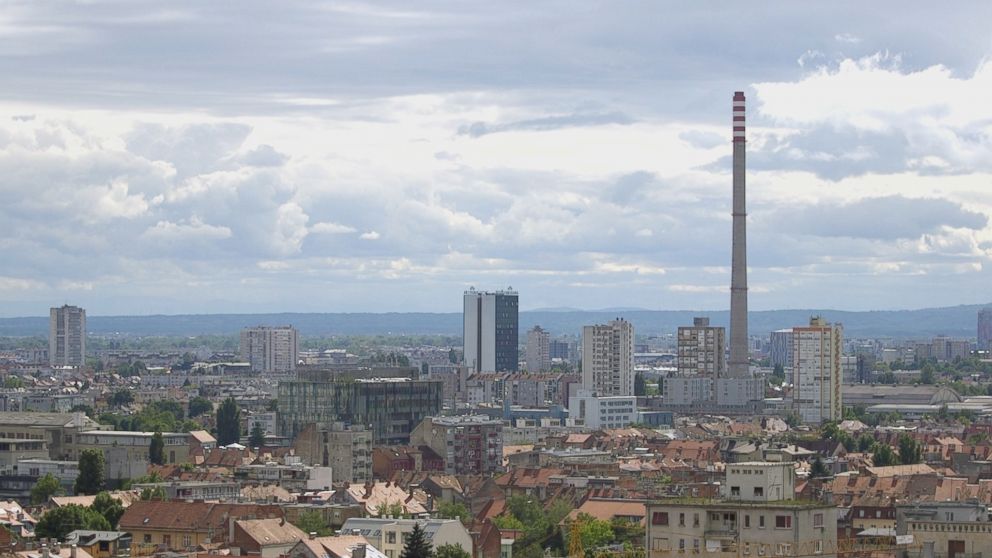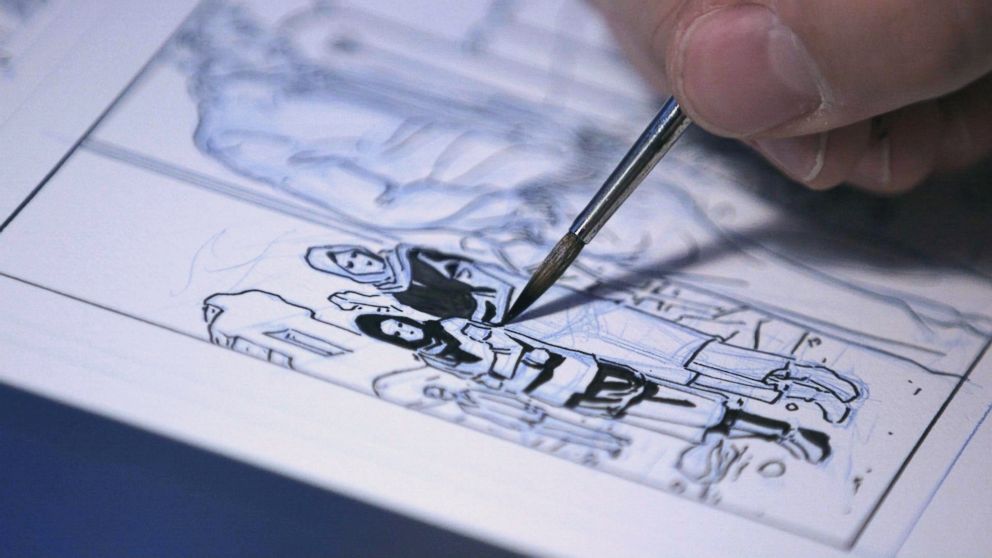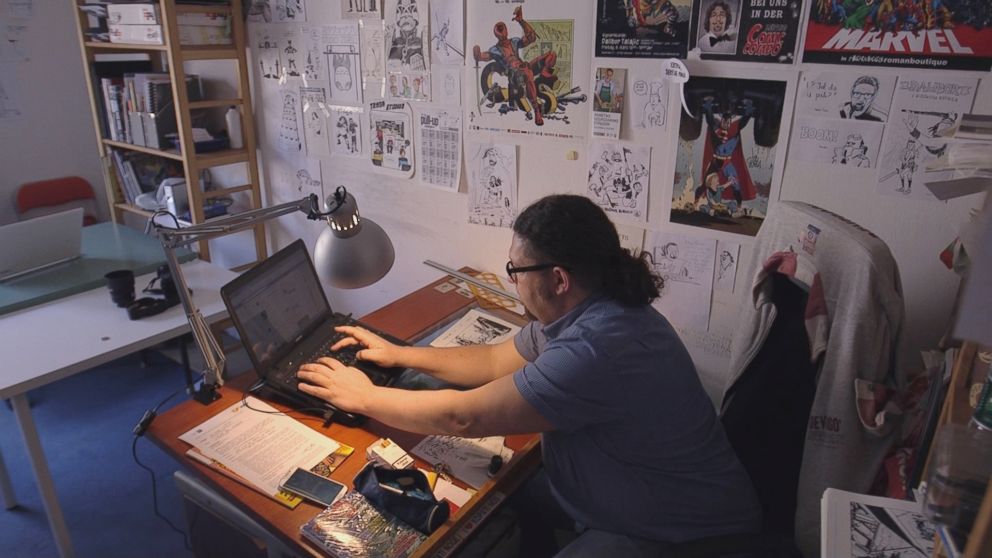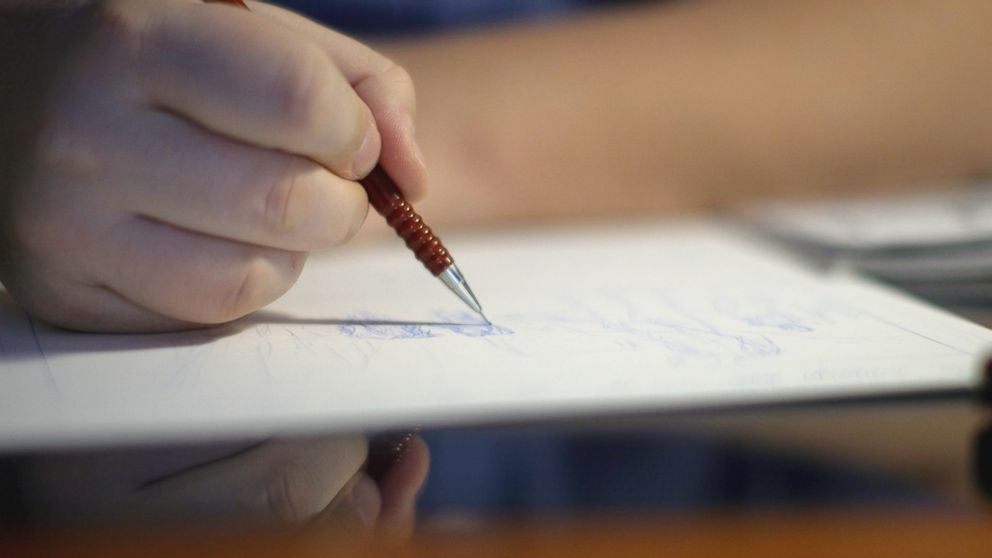Dalibor Talajic: The Man Behind the Pen of 'Madaya Mom'
Dalibor Talajic was never supposed to be a comic book artist.
— -- Dalibor Talajic´ was never supposed to be a comic book artist. Growing up in the former Yugoslavia, where comics were shunned as a lowbrow art form reserved for children, he was continually discouraged from pursuing his dream of becoming a professional comic book artist. It became a “sort of sad hobby.”
“I was supposed to grow out of it eventually and do something serious with my life,” Talajic´ told ABC News. “But I never stopped drawing. It was like my secret love, my nocturnal activity, if you will.”
Born to a musical family, with the “curse of good hearing,” he said, he was trained and schooled to be a musician and worked as a clarinet teacher for a decade before breaking into the comics industry. He credits the disintegration of Yugoslavia and the resulting influx of Western comic books into the Croatian market as the catalyst for his career shift.

“Suddenly it became possible. Suddenly it was not a childish dream. It was possible reality,” Talajic´ recalled.
“I decided I will do whatever it takes and this is the career I want to have,” he said. He shocked his parents by quitting his steady job at the music school. He began working full time drawing story boards for TV commercials as well as various small publishers. He was living his dream, but his bank account was taking a hit, and he had a new son to take care of.
“There were a couple of months of this moneyless window,” he admitted sheepishly.
“But then I took a gamble,” he added.
Talajic´ wrote to the publisher he had always wanted to work for: Marvel. To his surprise, his inquiry was immediately answered, and he was hired to draw the series “Deadpool Kills the Marvel Universe.” Seven years later, the series is his best-selling work to date, and he has become one of Marvel’s most sought-after artists.

His studio sits on the second floor of an unassuming block near Zagreb’s industrial zone. Its walls are covered with hysterical self-portraits, random doodles and posters of his favorite superhero movies. He shares the space with other accomplished Croatian comic book artists, and visitors are put through an unusual initiation: a pull-up contest immediately followed by contributing a drawing to the salon-style walls. It was there on an early spring afternoon when he got a surprising call from Marvel. Headquarters had a new secret project for him: illustrate the life of a mother trapped in the besieged Syrian town of Madaya.
Watch 360 video here or with a VR headset with the Littlstar app for iOS, Android, Samsung Gear and Apple tvOS.
“I was surprised by Marvel’s decision to cover this,” Talajic´ said. “It’s not typical for them. It’s not a superhero story, not a crime story. It’s real life, but it was almost insisted that I take this gig, because it was important to them.”
He accepted the job and dove headlong into dispatches sent from a young mother he would know only as “Madaya Mom.” (Her identity was withheld to protect her and her family from reprisals.) She was thousands of miles away, living in a town besieged by government-controlled forces since July 2015, but her words were powerful enough to shake him to the bone. Madaya Mom wrote of her starving children, her maimed neighbors and the horrible sensation of being abandoned by world powers. His task was not easy: to transform her text messages into vivid illustrations of life under siege. But the more he read, the more he understood why Madaya Mom’s story deserved to be on a shelf alongside those of spandex-clad characters such as Spider-Man, Captain America and Thor.
“Superheroes are not defined by their powers or their physique or their special abilities. Superhero is in the heart,” he said. “Madaya Mom fits within this category because she finds the strength to be human.”
“So maybe it’s no accident that Marvel took upon itself to publish this,” Talajic´ continued.

The project would prove to be among his most challenging yet. It wasn’t the tight deadlines or lack of visual references but rather the immense responsibility he felt for getting Madaya Mom’s story right.
“Doing that about someone who is actually alive, who is living and who you are about to draw — it raises a lot of questions. At first it sounds like exploiting someone’s really serious troubles,” Talajic´ explained. But if he could “personalize this immense suffering” and “help diminish that suffering a little bit, that’s something you can’t resist.”
“And of course, knowing that my own country went through war, I felt like there was a connection there, that I would know what to draw, that I wouldn’t randomly invent endless explosions and everything but really try to capture the depression of it,” he said.

Talajic´ was born in Sarajevo before moving to the Croatian city of Zagreb at an early age. He was just 18 years old when Yugoslavia descended into war. After being rejected from enlisting in the Croatian military, he joined a citizens’ watch group that patrolled Zagreb, but he quickly lost interest in the nationalism that had led him to pick up a weapon.
“I realized mostly throughout the war you are supposed to be cannon meat. You are just somebody to be shot at, a supposed casualty, a future statistic,” he said of his time on patrol.
Living in the Croatian capital, 20 miles from the front, Talajic´ said he never experienced “the real horrors of the war” but that the “pointless sense of living” wore on him day after day.
“The worst thing about the war is that you finally accept this new reality of just surviving on a daily basis,” he said of his time running for cover during constant air raid warnings.
“We learn to live with the circumstances, but these are really devastating circumstances, really devastating, and this is something I tried to visualize through the images that are produced in this comic book,” Talajic´ said.
The 33 panels he drew for “Madaya Mom” reveal his devotion to portraying the civilian side of the conflict in Syria. Most of his illustrations are set inside the home and revolve around what were once mundane domestic tasks transformed into deadly daily burdens. Washing clothes becomes a fight against hypothermia, and scavenging for firewood could mean losing a leg. He never shows his reader violence in real time, only the remnants. We never see a gun fire or a tank shell explode, only the scattered shrapnel and pools of blood left in their wake. In his Madaya, the soldiers are noticeably insignificant; it’s the citizens who are left picking up the pieces of their once prosperous city.
“What struck me most is the way she describes this everyday horror,” he said of Madaya Mom.
“If you read her words carefully, there is like hidden poetry, and it’s really devastating.”
The Walt Disney Co. is the parent company of Marvel and ABC News.




